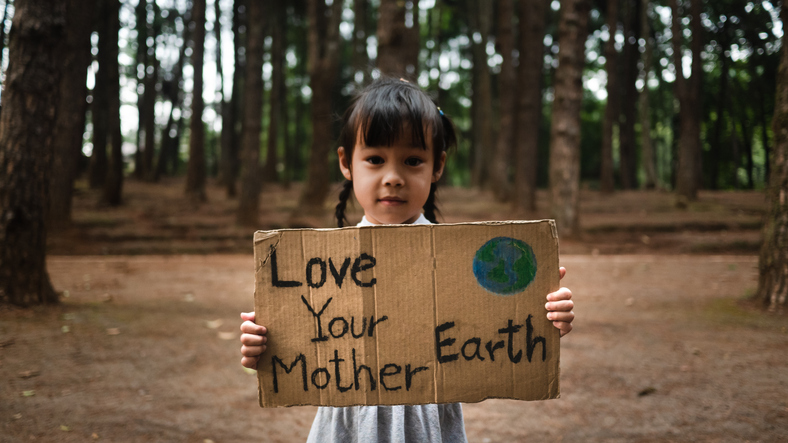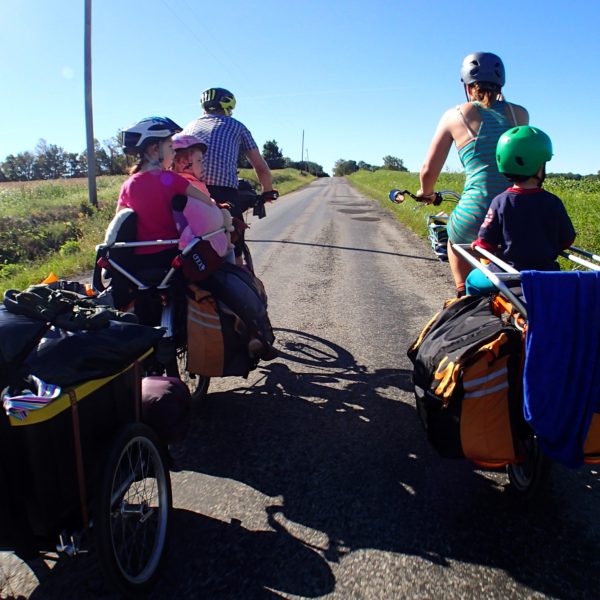Elliot Haspel on the intersection of early childhood and climate change

Many action items have arisen from the recent 2022 United Nations Climate Change Conference (COP27), an annual international climate meeting that was held in Egypt, however few (if any) relate to those who are most vulnerable to the effects of climate change: young children.
This lack of awareness and consideration for children in relation to one of the most pressing concerns of our time is at the heart of researcher Elliot Haspel’s work.
As a leading voice in early childhood, Mr Haspel, author of “Crawling Behind: America’s Child Care Crisis and How to Fix It,” recently joined Capita, a nonpartisan think tank, as a senior fellow where he will oversee the growth of the “Childhood Climate Fund,” the first global philanthropic fund focused on the intersection of early childhood and climate change.
Mr Haspel recently spoke with Edsurge, who asked “of all the urgent issues plaguing early childhood, why climate change, and why now?”
An extract of their conversation appears below. For the full interview, see here.
“Climate change poses enormous threats to early childhood development, so in my view, all of our efforts to improve child and family well-being are going to be capped if we don’t address climate change,” Mr Haspel began.
Climate change and child development
The intersection of climate change and early childhood development, he believes, is in the fact that efforts to mitigate and fight climate change “are really missing a grounding force in children and families”.
“The threats to young children in particular have been because young children – and I mean prenatal to age eight years – are uniquely vulnerable to just about every impact of climate change, especially because of their biology.”
“The developing brains and bodies of young children take much harder blows from things like wildfire smoke and air pollution, from experiencing natural disasters that are climate-enhanced, from having disruptions to their caregiving situations that are caused by climate-enhanced storms.”
“A good example is air pollution,” he continued.
“Young children take in the particulate matter from air pollution at a much higher rate than older youth or adults because they breathe in and out quite a bit faster. They are smaller in stature, so they’re closer to the ground, where the pollution concentrates. They’re inhaling the particulate matter much, much more than adults, which can not only mess with their physical development, like respiratory issues, but it also affects brain development.”
Impacting on the experience of childhood
Beyond the physical and neurological impacts the impacts of climate change are reshaping the experience of being a child, he continued.
“At a very raw level, there are simply more days of the year that are so hot you can’t reasonably go outside for very long, or there is such severe weather you can’t go outside. Children have fewer days that they could reasonably be outside playing in nature than they could before, and that’s for a variety of reasons: the number of extreme precipitation days, which are at historic highs, the number of extreme storms, the number of heat waves. Heat waves are getting longer. Heat waves are getting hotter. And all of that impacts childhood.
“It has always been hot; we should be clear about that,” Mr Haspel said, “but the sheer intensity and length of it is so much more that it is impacting children’s relationship with nature.”
Families displaced by climate change
Children are increasingly being impacted by climate related weather events such as bushfires, flooding and storms.
“If your house or apartment floods out, or certainly if your house burns down or is decimated, yeah, your entire life is turned upside down,” Mr Haspel explained.
Young children, and children in general, experience the psychological impacts of natural disasters significantly worse than adults. Such events are hugely disruptive to the entire family and often cause instability to the parents, which again impacts children.
“So the more that we see communities ravaged by everything from these truly dramatic natural disasters to the more mundane, huge rainstorms, it’s really going to continue to impact children,” he continued.
In a sea of problems, why should advocates choose climate change?
“For early childhood educators and advocates of early childhood education who may be skeptical that this is the issue to direct focus on within the field, when there is just so much else that needs addressing, what would you say?” Mr Haspel was asked.
“The climate movement is a better funded and more politically powerful movement than early childhood. And I think that tying the two together…is potentially a very powerful reframe and a very powerful alliance,” he replied.
“Focusing on the climate is additive. It is supporting our direct goals as an early childhood field or sector. So it is supporting school readiness. It is having child care programs that are not flooding out or burning down or having their AC break so fewer kids (sic.) are dealing with climate trauma from displacement or air pollution. All of that directly helps our goals of making sure that every child is having maximally positive early childhood experiences.”
“That’s my argument. Yes, look, the childcare (sic.) crisis is raging (but) as climate writer Alex Steffen says, climate change “isn’t an issue, it’s an era.” It subsumes all the other issues.”
Popular

Quality
Practice
Provider
Workforce
Reclaiming Joy: Why connection, curiosity and care still matter in early childhood education
2025-07-09 10:00:07
by Fiona Alston

Policy
Practice
Provider
Quality
Research
Workforce
Beyond the headlines: celebrating educators and the power of positive relationships in early learning
2025-07-07 10:00:24
by Fiona Alston

Workforce
Policy
Quality
Practice
Provider
Research
ECEC must change now, our children can’t wait for another inquiry
2025-07-02 07:47:14
by Fiona Alston













